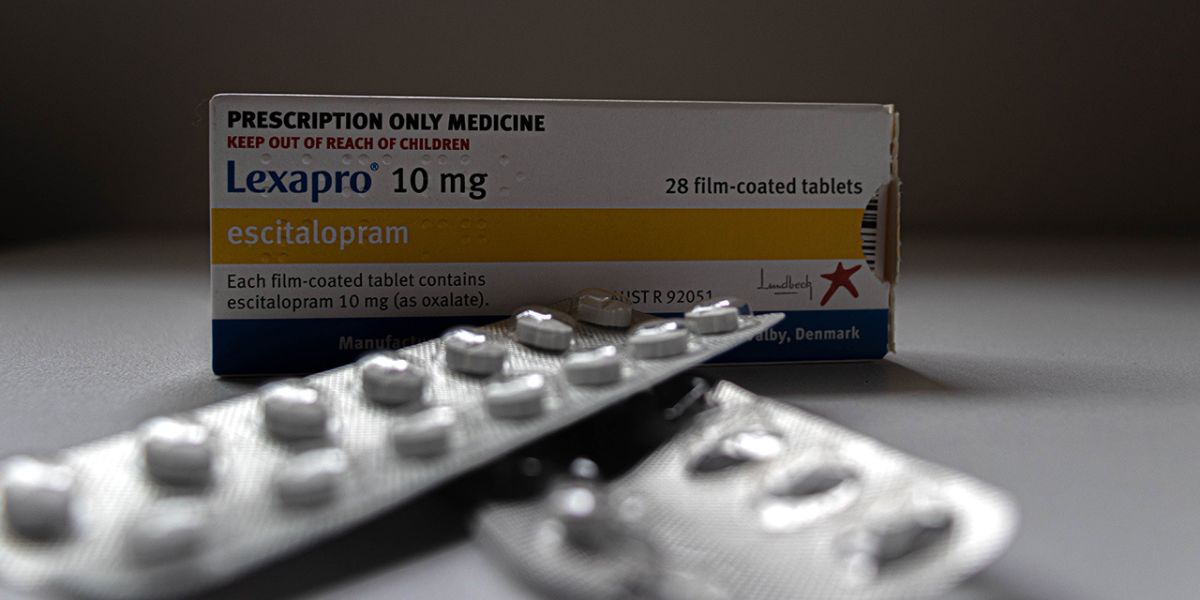Lexapro Abuse: Side Effects and Symptoms


Escitalopram, or Lexapro, is often prescribed in the United States to treat depression and other mental health disorders. It is a commonly used prescription medication. It is not expected to become addicted to Lexapro, but using it for a long time can lead to psychological dependence.
Despite its primary medicinal purposes, people do not commonly seek Lexapro prescriptions for recreational use. However, people grappling with substance and alcohol misuse may exploit it to self-medicate for conditions not related to its intended use or to intensify the effects of other drugs. Some people mistakenly believe that Lexapro can help with emotions or coping, so they use it without a doctor’s prescription.
Abuse of Lexapro can cause serious side effects. One of these is serotonin syndrome, which occurs when the body has an excess of serotonin. Serotonin syndrome is a dangerous condition that can have severe consequences.
It is important to use Lexapro properly to avoid these risks. Additionally, inappropriate use of Lexapro can result in dependency and the onset of withdrawal symptoms upon abrupt discontinuation. Abusing Lexapro, particularly alongside other substances, heightens the danger of adverse outcomes and increases the likelihood of addiction development.
What Is Escitalopram (Lexapro)?
Doctors prescribe escitalopram, sold under the brand name Lexapro, to treat anxiety and depression disorders. Serotonin is a brain chemical that helps control mood and overall well-being, often called the “feel-good” chemical.
Lexapro is a prescription medication for general anxiety disorder, also known as GAD, and MDD, or major depressive disorder— part of the selective serotonin reuptake inhibitors (SSRI) family of medications. Lexapro operates by hindering serotonin’s reabsorption into your brain’s neurons. This process boosts the level of serotonin, leading to improved mood and decreased anxiety.
Lexapro, an FDA-approved medication for treating depressive and anxiety conditions:
- OCD or obsessive-compulsive disorder
- PTSD or post-traumatic stress disorder
- PMDD or premenstrual dysphoric disorder

Lexapro Effects
Lexapro, an SSRI, can improve depression and anxiety by boosting energy, appetite, and sleep in the first two weeks. The relief of depressive symptoms, sadness, and disinterest might require up to eight weeks to manifest.
Discussing any side effects you encounter while on Lexapro with your doctor is essential.
Is Lexapro a Controlled Substance?
Lexapro is not considered a controlled substance under the Controlled Substance Act (CSA), meaning it is not usually linked to abuse. However, it is not recommended to use Lexapro without the guidance and recommendations of a healthcare professional.
Lexapro Addiction
Lexapro is an antidepressant frequently prescribed to alleviate symptoms of depression and anxiety. It functions by adjusting serotonin levels in the brain, enhancing mood, and diminishing feelings of sadness and anxiety.
Lexapro can help people with addiction by reducing their desire for alcohol, even though it is not a controlled substance. This aspect is beneficial for those aiming to combat alcohol dependence and achieve lasting sobriety. Lexapro does not produce the same feelings of euphoria as drugs, so it is less likely to be misused or abused.
Lexapro can lead to psychological dependence if misused by taking too much or not following prescribed usage. However, it does not cause physical addiction. As an SSRI, it’s generally not addictive, yet long-term use can result in tolerance and subsequent dependency.
Common Side Effects of Lexapro Abuse
Taking Lexapro, a widely used antidepressant, may lead to various side effects for certain users. Side effects can differ in how strong they are and how often they occur. This is very true if the person doesn’t take the medicine right, uses it for a long time, or suddenly stops.
Typical side effects of Lexapro include:
- Dry mouth
- Mood fluctuations
- Changes in appetite
- Nausea, vomiting, or diarrhea
- Symptoms resembling the flu
- Tiredness
- Headaches
- Sexual dysfunction
- Sleeplessness
- Heightened anxiety and depression
- Agitation
Extended use of Lexapro can lead to long-term side effects such as:
- Cardiac problems
- Serotonin imbalance
- Mood swings
- Suicidal thoughts
- Sexual dysfunction
- Dental problems
- Increased menstrual flow
- Concentration difficulties
- Urinary challenges
- Weight gain
- Nosebleeds
- Muscular tension
- Convulsions

Lexapro Withdrawal
If you stop taking Lexapro suddenly after using it for a long time, you may experience withdrawal symptoms. Your body needs time to adjust to not having the chemicals that it has gotten used to in the medication.
Typical Lexapro withdrawal symptoms include:
- Dizziness
- Headaches
- Nausea
- Discomfort
- Symptoms similar to the flu
To avoid acute withdrawal symptoms, it’s crucial to consult a doctor or healthcare provider before altering your regular Lexapro dosage.
Treatment for Lexapro Abuse at White Oak Recovery Center
If you or someone you know is having trouble with Lexapro addiction or misusing antidepressants, there is help available. This includes evidence-based care for substance use disorders and medical detox with ongoing medical supervision.
White Oak Recovery Center provides medical detox with 24/7 supervision for safety and comfort during the withdrawal process. Our trained team is committed to keeping you safe, helping you heal during your time at WORC, and supporting your recovery.
WORC provides integrated treatment for substance and alcohol addiction alongside co-occurring mental health conditions in our welcoming residential facility. Every resident gets a customized treatment plan that focuses on their unique situation and helps them reach their goals.
Your health insurance might cover the total cost of your treatment. Reach out to speak with one of our empathetic treatment specialists today. Your journey towards long-term recovery starts here.

Am I covered for addiction treatment?
Your insurance may cover treatment. Call now for an entirely free and confidential assessment. Recovery starts with a phone call.

- Landy, Kristen, et al., “Escitalopram.” StatPearls: National Library of Medicine, Nov. 2023.
- “Escitalopram (Marketed as Lexapro) Information.” US Food and Drug Administration, Dec. 2014.
- Kirino, Eiji, “Escitalopram for the Management of Major Depressive Disorder: A Review of its Efficacy, Safety, and Patient Acceptability.” Patient Preference and Adherence, Dec. 2012.
- Jauhar, Sameer, et al., “Antidepressants, Withdrawal, and Addiction; Where Are We Now?” J Psychopharmacol, Jun. 2019.
Medical Disclaimer:







